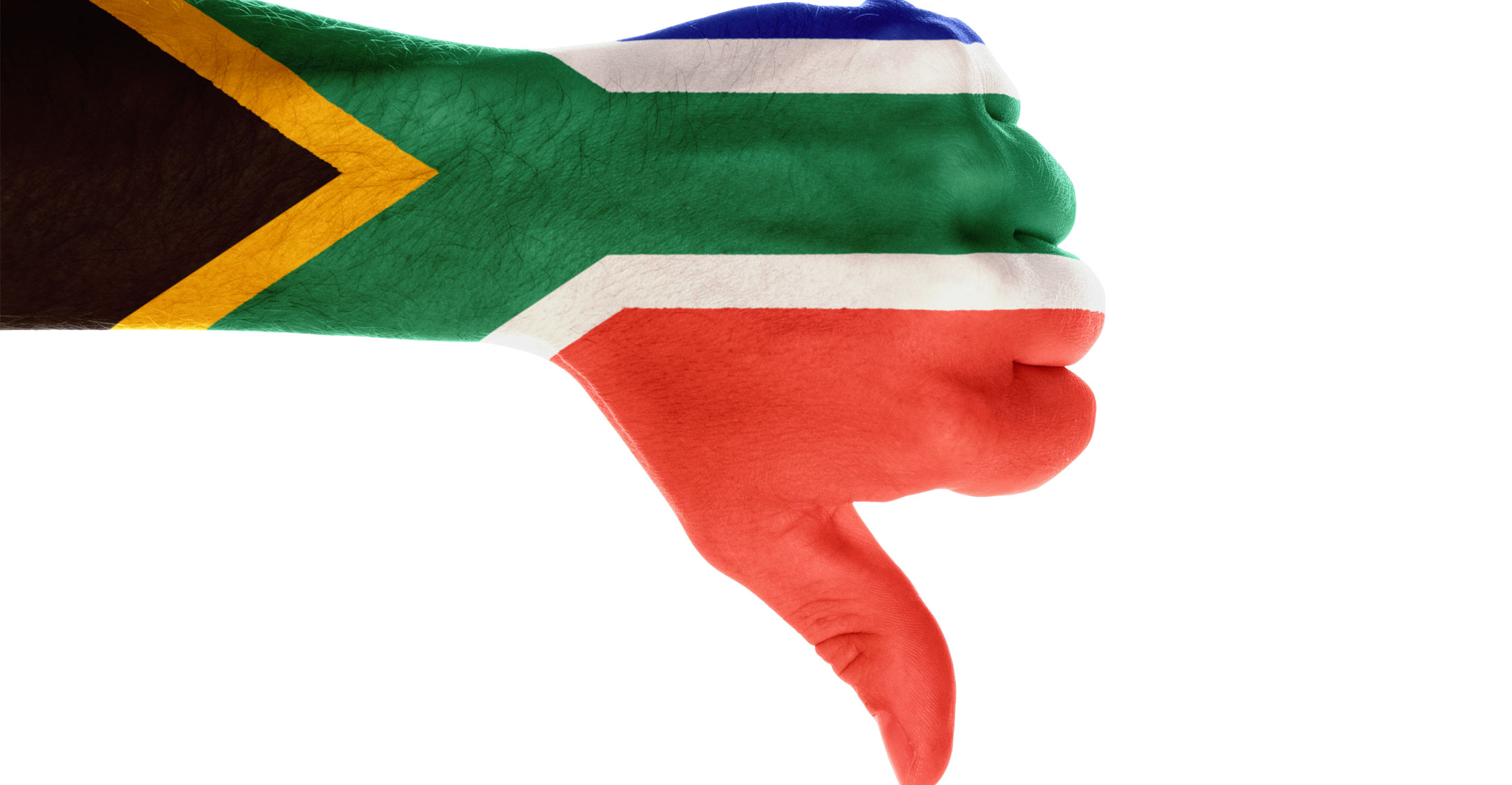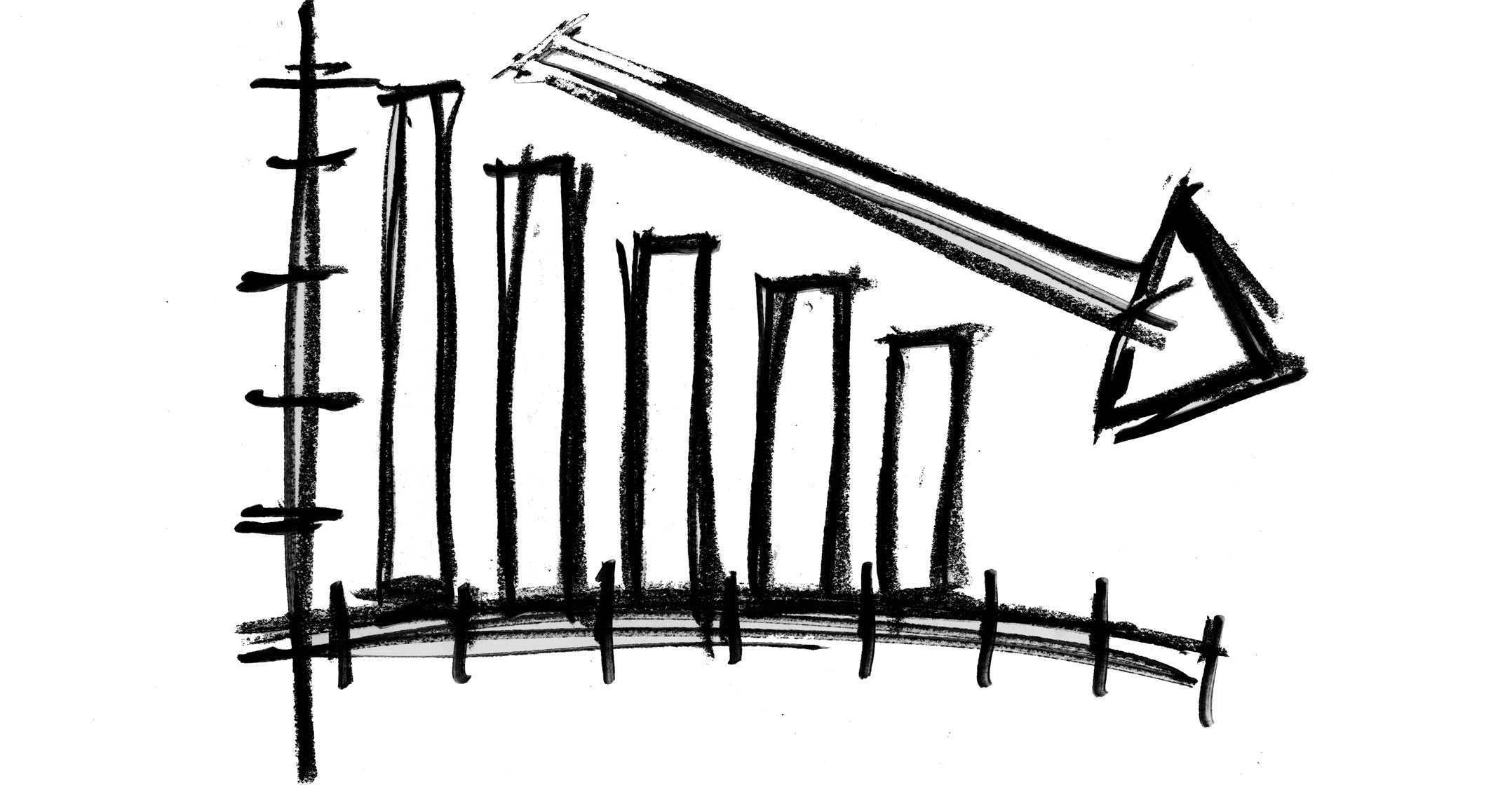 South Africa’s political and economic decline is accelerating and the country risks becoming a lower-middle-income nation by 2028, a model developed by Eunomix Business & Economics shows.
South Africa’s political and economic decline is accelerating and the country risks becoming a lower-middle-income nation by 2028, a model developed by Eunomix Business & Economics shows.
The forecast, brought forward by two years from a 2020 assessment, highlights the failure of the ANC’s policies to accelerate economic growth, the Johannesburg-based risk-advisory firm said in a report.
By 2020, the nation’s per-capita income had plunged to three quarters of the world average and was below that of middle-income peers, Eunomix said. In 2000, income was on par with the global average and twice that of middle-income nations.
The decline was measured across a range of political, social and economic indicators. Eunomix tied the fall to the inability of the ANC to alter the structure of the economy put in place under apartheid, when the intention was to exclude the country’s black majority. While the white-minority government used suppression to enforce its model, the ANC has instead created what Eunomix described as the world’s largest welfare state by some measures.
“Democratisation ended formal political exclusion, but through its failure to reverse economic exclusion, the ANC replicated a central attribute of apartheid,” Eunomix said. “Rejection of labour-intensive-export-orientation as a cornerstone of development has been the foundational mistake of democratic South Africa. In doing so, the ANC has crystallised the poisonous divorce apartheid established between economy and politics.”
Economic collapse
“This growth collapse is now reaching a point where we are now facing the high probability of an economic collapse,” Claude Baissac, Eunomix’s founder, said in an interview. “We are looking at the beginning of a Greece-like, an Argentina-like, shrinking of the economy.”
A contracting tax base, pedestrian economic growth and misguided policies — such as a drive to have goods made locally by providing protection to local producers — are behind the slump, Eunomix said. That, coupled with rising discontent and increasing violence, is pushing the nation toward “failed state” status, it said.
The World Bank defines lower-middle-income status as countries with a gross national income per capita of between US$1 046 and $4 095. South Africa’s GNI per capita was $5 410 in 2020, according to the World Bank.
 The annual economic growth rate averaged just 0.8% between 2015 and 2019, meaning South Africans effectively became poorer, the company said. That compares to an average of 2.5% between 2010 and 2014.
The annual economic growth rate averaged just 0.8% between 2015 and 2019, meaning South Africans effectively became poorer, the company said. That compares to an average of 2.5% between 2010 and 2014.
Without a change in policies, that trajectory is likely to continue or worsen, Eunomix said, with an expected recovery from the impact of the Covid-19 pandemic short-lived.
According to Eunomix, gross fixed capital formation fell to a record low of 12.4% of GDP in 2020 and savings, at 15% in 2019, were below the sub-Saharan Africa average of 19%. The number of people who pay income tax, in a nation of 60 million, fell to 4.3 million in 2019 from 6.3 million in 2012, the company said. One in three South Africans receives a welfare check.
Still, a change in policy could see an upturn in the country’s fortunes, Baissac said.
“South Africa is in the tremendously lucky position that it has many low-hanging growth fruits. Sectors like energy, including natural gas, transport infrastructure and agribusiness have vast potential,” he said. “Simple steps to clarify policy and implement basic measures would immediately lead to investment, and thus jobs and growth.” — (c) 2021 Bloomberg LP

